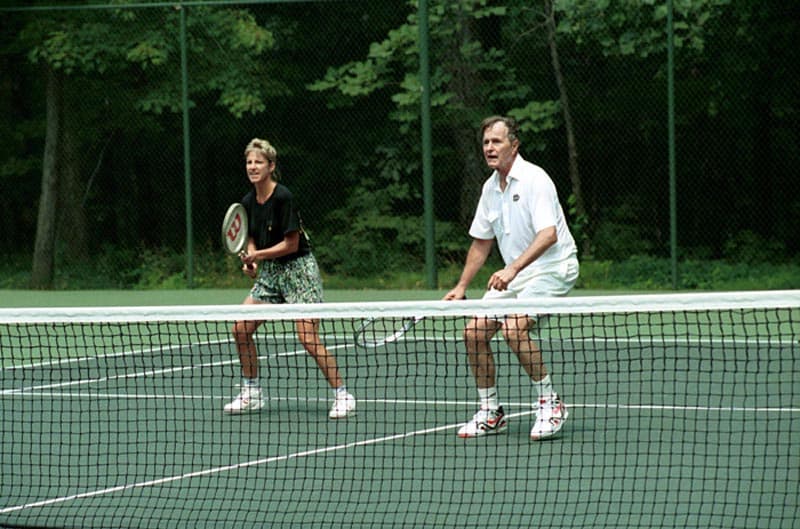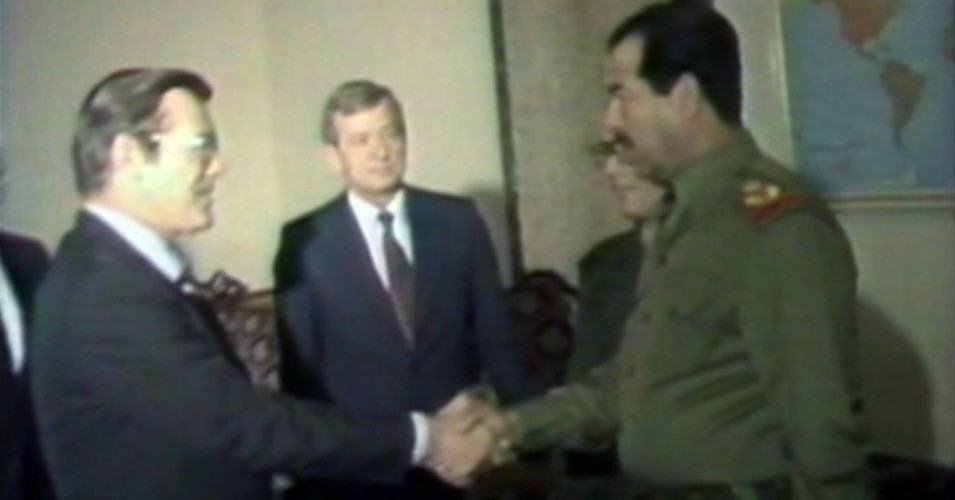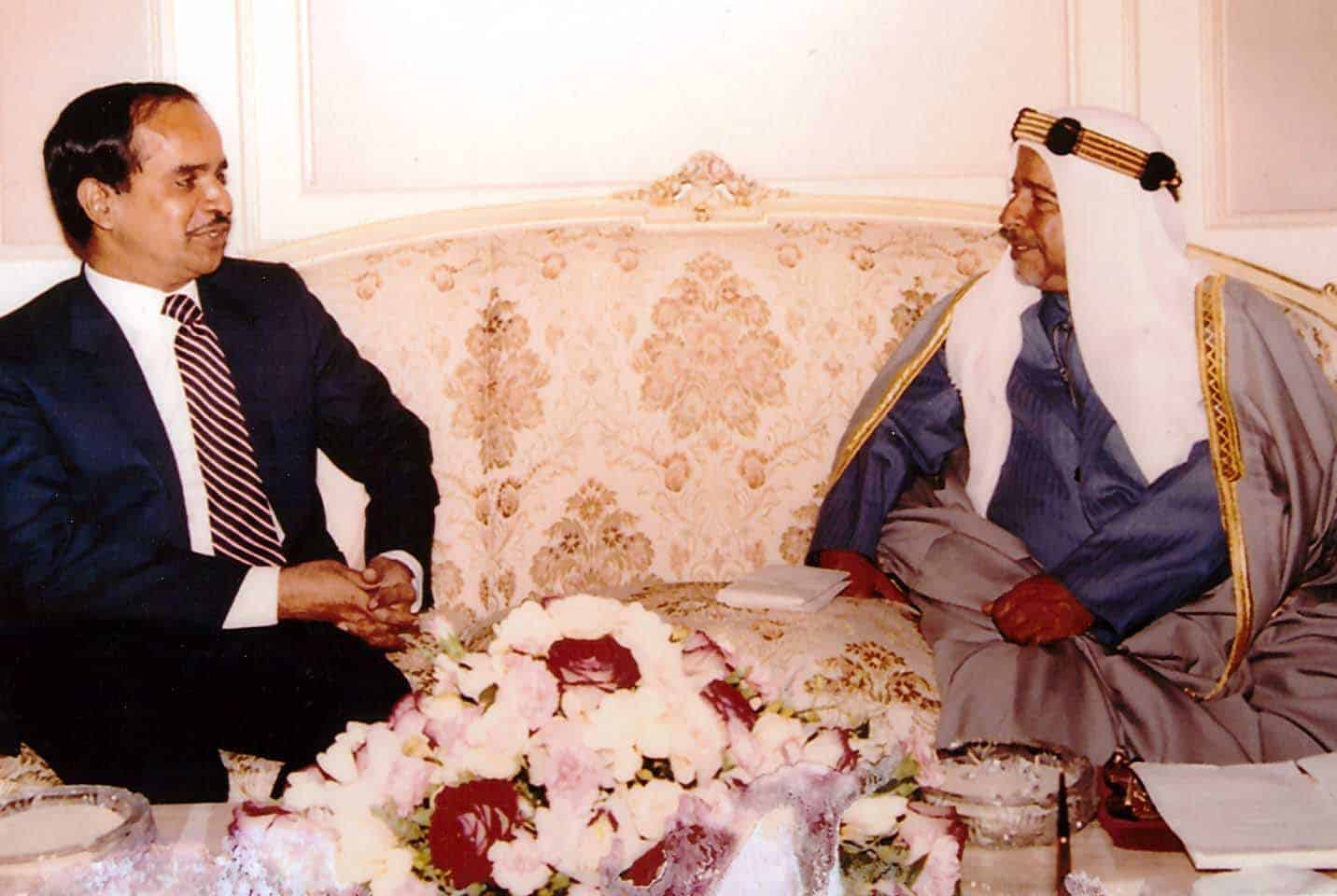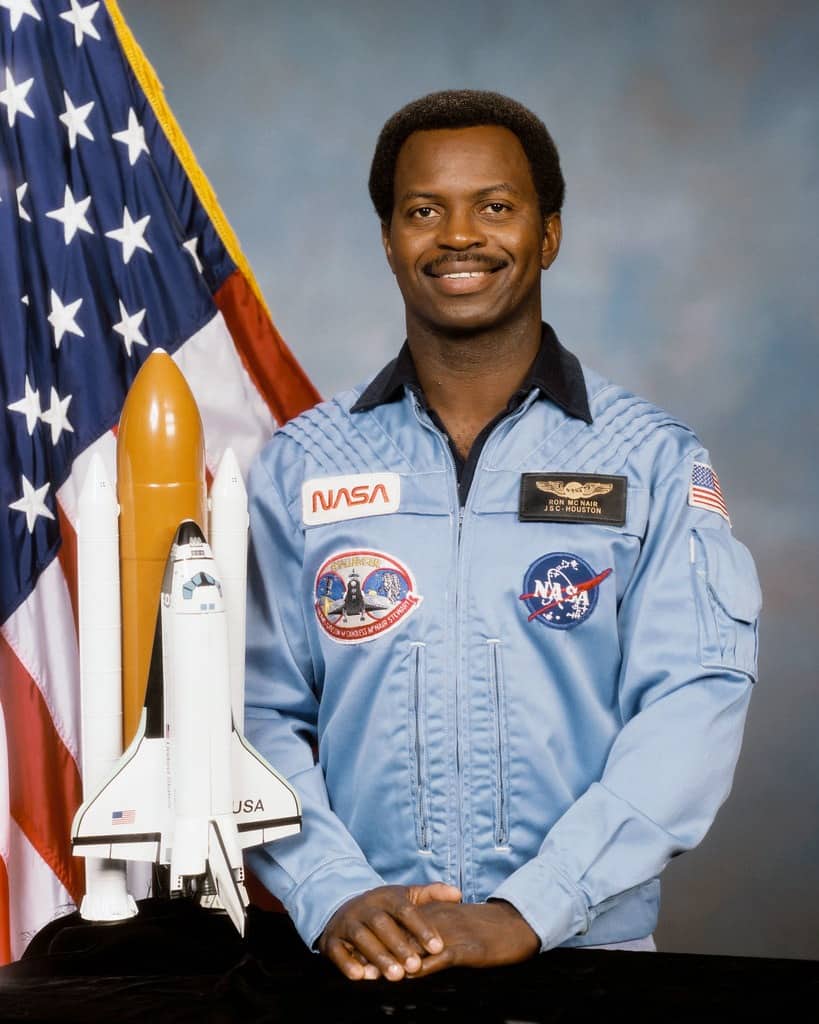
In the heat of the Iran-Iraq War, paranoia and uncertainty engulfed the region, with many American allies looking to the United States for support and assurance. Fearful that the seemingly dominant Iran would assert its historical claims over the island of Bahrain, Emir Isa bin Salman Al Khalifa grew increasingly concerned. U.S. Ambassador to Bahrain Donald Leidel facilitated dialogue with the Bahraini government amidst the unfolding chaos while also preparing for one of many high-profile visits to his embassy at the time: Vice President George Bush would be addressing these issues in person with Bahrain’s Emir.
In order to begin the visit on a positive note, Ambassador Leidel organized a diplomatic tennis match between Vice President Bush and the Bahraini foreign and interior ministers, with whom the ambassador played with frequently. Although being known as an accomplished athlete and avid tennis player, Vice President Bush surprised everyone when he won four games with different partners each time. Ambassador Leidel even attributed the success of the
Vice President’s visit to the friendly match.
Throughout his time as Ambassador to Bahrain, Donald Leidel hosted a plethora of other prominent guests and sought to make their visits unique and interesting. This included desert tours with the late American astronaut Ronald E. McNair and heated exchanges with Donald Rumsfeld.
Ambassador Leidel graduated from the University of Wisconsin in 1949 and continued to study law at the University of Wisconsin Law School until 1951. He went on to serve in the Central Intelligence Agency for ten years before joining the Foreign Service and ultimately becoming the U.S. Ambassador to Bahrain.
Ambassador Donald Leidel’s interview was conducted by Charles Stuart Kennedy on August 24, 2016.
Read Donald Leidel’s full oral history HERE.
Drafted by Alei Rizvi
Excerpts:
“When I’m asked what my greatest contribution as ambassador to Bahrain was, my answer was, ‘Arranging a tennis match.’”
Diplomatic Tennis: I knew Bush – George H.W. Bush – would be arriving, and I knew he was a tennis player, and I played regularly with the foreign minister and the interior minister, and I thought it would be great if I could arrange a tennis match. Both the foreign minister and the Bush’s advance people were initially negative, and I think the foreign minister who was really up on everything in the United States knew that Bush was an accomplished athlete, and an excellent tennis player, and for some reason the advance team didn’t think it was a good idea. But I pressed and I pressed, and finally they agreed, and Bush came along with Don Greg, who was his tennis partner.
And Bush arrived – my wife was in the States at the time, before the birth of our first grandson, and she was invited to return on Air Force Two with Bush and his staff. And they got off the airplane. Bush was taken to his residence at the palace, and immediately got into tennis clothes, and the first event on his three day tour was this tennis match. I played in the next court with assistant secretary of NEA, who was also against two top Bahraini young tennis players.
So, Greg and Bush played foreign minister and interior minister, and Greg and Bush won. Then Bush said, “Let’s change partners. I’ll play with the foreign minister.” And Bush and the foreign minister won. And then they played again and Bush and the interior minister won. So the two Bahrainis, all of them won, and it turns out it really set the visit off on a positive key, and the advance people – this was one of several visits later – told me Bahrain was the best of all their visits, which I attribute to the tennis match. And I’m really joking now, but I told people I had a role in Bush’s decision to push Iraqis back because he had to protect Bahrain. So that’s my story of Bush’s visit.
“Your president has just pulled your marines out of Lebanon, and what’s going to happen to Bahrain if we’re in trouble?”
Regional Paranoia: But one Friday morning, which was their sabbath, he had a different look on his face. I said, “What’s the matter? Something troubling you?”
And he said, “Yes. Your president has just pulled your marines out of Lebanon, and what’s going to happen to Bahrain if we’re in trouble?” He said, “If I knew him better, I would give George Bush a call, but –” He went on and on. And Bev was with me, and it was a Friday, the sabbath, and we tried to recall the conversation word for word and I sent a telegram, and I put in there the, “If I knew him better, I would call the Secretary,” it got to the Secretary. It not only got to the Secretary; she’d send it to Reagan.
And about two weeks later, I got a two page letter signed by Reagan, which I delivered to the emir, assuring him of our continued and full support. And the emir liked to know that this really happened, because during the Iraq War One, Iraqis had sent rockets into Bahrain, and this was when George H.W. pushed them out of Kuwait. So the emir was forever grateful for that.
“Wayne White of the State Department and Paul Pilar of the Defense Department said that we would regret an invasion of Iraq. The intelligence doesn’t indicate that they’re an immediate threat, and the unforeseeable problems that will come up are legions.”
The Iraqi Dilemma: Rumsfeld was the Secretary of Defense, and he went from Bahrain to Iraq to present Texas cowboy boots to Saddam Hussein. So we were being far from neutral, and when people accuse the United States of not trusting, Iran had good reason not to trust the United States. We were supporting Iraq in the Iraq-Iran War, we had a hand in overthrowing constitutionally elected for the Shah, and during George Bush’s administration, we labelled Iran as part of the axis of evil. So, how could they trust us?
Do you recall our second invasion of Iraq and weapons of mass destruction and the fact that Rumsfeld and Cheney held that all of the intelligence showed that they had weapons of mass destruction? Wayne White of the State Department and Paul Pilar of the Defense Department said that we would regret an invasion of Iraq. The intelligence doesn’t indicate that they’re an immediate threat, and the unforeseeable problems that will come up are legions. And news reports never have gotten to that at some point during the administration. Never talked to the Iraq desk people in the two intelligence agencies.
“I’m not here to listen to you, I’m here to tell you what to do.”
Rumsfeld Visits: I met Rumsfeld twice. I was called to Oman with all of the ambassadors in the Gulf, and this was just a month or two. So it was in December, and I had arrived in November, and I was the new kid on the block. And these were all stationed ambassadors. So I said very little. But there were a lot of disputes between the field and Washington. Rumsfeld at the time was the Middle East negotiator, and when the ambassadors started questioning, Rumsfeld said, “I’m not here to listen to you, I’m here to tell you what to do.” I’ve never forgotten that.
Later on, he came to visit Bahrain on his way to Baghdad. And I just recall that it was generally a pleasant meeting, but on the way to meeting the Bahrain cabinet – this was time when again there was talk about moving the embassy from Tel Aviv to Jerusalem, in which there was prediction of a lot of bloodshed in the Arab world if we would do this – and I, in the car, on the way to the meeting, I said to him, “Why doesn’t the White House educate Congress on the implications of moving our embassy?”
And his answer was, “That’s a dumb question.”
And I didn’t know what to say, and then he paused and he said, “That’s just one of a hundred issues that the White House has with Congress.” And he said, “You have no idea what it’s like in the White House.” Something like that. So that was Rumsfeld.

Emir-aculous Relationship: I’ve lived in five countries, and I found Bahrain the friendliest and most hospitable of all five countries. And I had rapport with the emir, that was unlike a rapport with any of the other officials. I saw the emir more, at his request, than the foreign minister or the prime minister or the defense minister at the time. He had a beach, which was open only to Westerners, and we would go almost every weekend, and I met with him almost every weekend. And if there was a weekend we didn’t show up, he would wonder why we weren’t there. So this was very special. And I don’t say this because it was my personality, it was because I was the U.S. ambassador.
I told you about my meetings with the emir, and generally he had a great sense of humor, and one thing I was told by my DCM (Deputy Chief of Mission) – I had two very good very DCMs – when I arrived is, “What the emir tells you – his views aren’t always the official views of the government, so be careful in reporting his views or Washington will get very confused.”
Before I left, my replacement was nominated, and his name was Sam Zakhem, who would be the first political appointee, and he was the political director for _______. And also a state legislator and a heavy contributor to the Reagan administration. He was born and raised in Lebanon, and he was the nominee. And when Bahrain got the nomination, I was called in by the emir, the foreign minister, and the crown prince, all of whom urged me to stop the appointment. The emir said, “We can’t have a Lebanese as the ambassador. I can’t let him visit me in the beach. He’s Lebanese.” And I said, “He’s an American citizen.”
And I thought that I’d call George Vest and tell him of their concern. And George’s answer was, “Regulation’s law now is we can’t extend your tour for more than three years.” I said, “I’m not asking for a tour, I just wanted you to know of their attitude.” And eventually, Bahrain never did anything, and when he arrived, I was told, he told his staff, “I’m more American than you are. I chose to be an American; you were just fortunate enough to be born there.” So, I went back to Washington in 1986.
TABLE OF CONTENTS HIGHLIGHTS
Education
University of Wisconsin 1945–49
University of Wisconsin Law School 1949–51
Central Intelligence Agency 1951–61
Joined the State Department 1962
Buenos Aires, Argentina—Personnel Officer 1965–68
Mexico City, Mexico—Personnel Officer 1968–71
Manama, Bahrain—U.S. Ambassador to Bahrain 1983–86
Retired from the Foreign Service 1992


